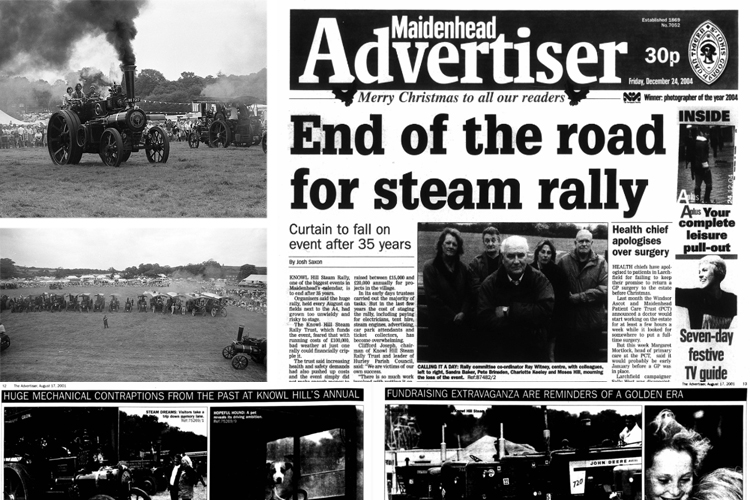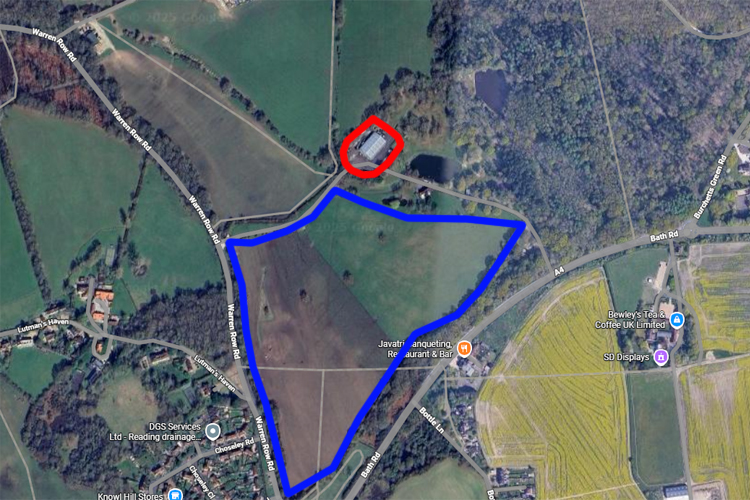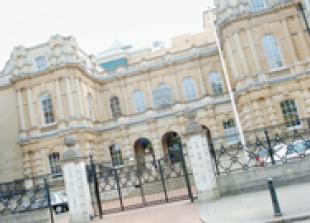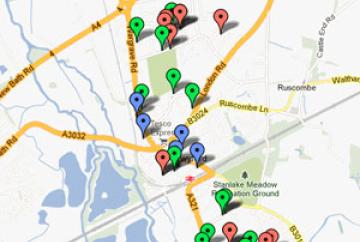Former Knowl Hill Steam Rally yard can be new industrial space, inspector rules
05:05PM, Monday 20 October 2025

Archive image of Knowl Hill Steam Rally in 1984.
Plans have been approved to make changes to a former steam rally yard in Knowl Hill after a Government planning inspector overturned the local authority’s objection.
The appeal site, a yard beside Kiln Cottage featuring a large warehouse and shipping containers, overlooks fields previously used to host the Knowl Hill Steam Rally.
Steam engines and historic machinery were stored at the yard while the event, once one of the biggest in the Maidenhead calendar, took place. It ran for three and a half decades.
Up to 60,000 people attended Knowl Hill Steam Rally at its peak in 1980, with some coming as far away as the then Yugoslavia, according to the Advertiser’s archives.

A collage of Knowl Hill Steam Rally coverage in the Maidenhead Advertiser
But due to burgeoning operating costs, the rally was wound up in 2004. The decision was announced in the Maidenhead Advertiser’s Christmas edition.
Evidence of a small railway track built to showcase steam locomotives at the rally is one of the few remaining nods to the land’s past use.
Photographs submitted to the appeal, taken when the yard site was cleared in 2018, showed numerous old tractors and trailers left to the elements and gathering rust.
Landowner David Bond’s planning application sought to divide the warehouse into five separate workshops, 25 new car parking spaces and five spaces for heavy goods vehicles.
RBWM council refused the application in early 2025, with assistant director of planning Adrien Waite warning the changes represented ‘inappropriate development within the greenbelt’.
Mr Waite said the plans ‘would have an urbanising impact on this rural area, detrimental to the character and visual amenities and character of this rural area’.

The appeal site highlighted in red and former steam rally fields in blue (map credit: Google)
Following the local authority’s refusal, Mr Bond lodged an appeal with the Planning Inspectorate.
The inspectorate, a Government organisation, can overturn decisions made by councils and has the power to order a party cover the other’s financial costs of appealing.
A statement on behalf of Mr Bond said: “No adverse ecological impacts will occur as a result of the new use and modest construction changes.
“The site is not needed for agriculture and a new use needs to be found for this asset. There are no local objections.”
In a decision notice, Planning Inspector G Sibley resolved to approve the application.
"The appeal site’s self-contained appearance, with screening provided by fences, trees, and hedges, would localise the visual impact of the development,” the inspector said.
Building work at the site, the inspector added, would therefore ‘not substantially harm the rural character of the area when seen from wider viewpoints’.
The inspector said: “Given that the building was used in connection with an annual steam rally and based on the historical images provided of the appeal site, it is likely that large vehicles were kept on site.
“Consequently, vehicles and materials associated with the storage, maintenance and repair of them could be stored around the building.”
The inspector did, however, rule against an application from Mr Bond for the council to pay for the appeal costs and said ‘wasted expense’ had not occurred because of the appeal proceedings.
Most read









































